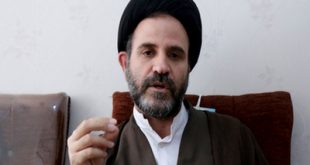
RNA – Hujjat al-Islam Sayyed Kazem Sayyed-Baqeri, an assistant professor of Islamic Culture and Thought, has written a report examining the nature, necessity, history, types and mechanisms of oversight over political power in Islamic jurisprudence pertaining to governance.
The following is a continuation of his report.
What is the purpose of the principle of the oversight of political power in the political thought of Islam and in other schools?
The issue of the oversight of political power in Western thought has also been raised and, as I have said, it has been the concern of all political thinkers, but in regard to this issue, there are key differences between the Western and Islamic perspectives.
The principle of oversight and the fact that the ruler must be accountable has been accepted in both Western and Islamic discourses, however, there are differences in Western thought and religion regarding the question of which means and mechanisms of power should be controlled.
In the West, after experiencing the repression of the Roman Catholic church in the Middle Ages, struggles, efforts and concerns to curb power were raised more seriously because thinkers and theorists of the issue power considered that their society could experience a deteriorating situation at any given time and to this day, they have tried to find a strategy to prevent their societies from suffering from this repression and deviation.
The French lawyer, man of letters, and political philosopher Montesquieu argued for the separation of powers, and Montesquieu said that when determined power is combined with implementation in one person and one governing body, there is no longer any freedom because it is feared that arbitrary laws would be exercised and be enforced arbitrarily. The principle of the separation of powers is to prevent the corruption of power.
English philosopher John Locke’s analysis of this is that if a person who is a legislator also has executive power, there is always the temptation to misuse power and it is not unlikely that he will be able to exercise his own power in the position of exercising the law.
The English Catholic historian, politician, and writer, John Dalberg-Acton is also famous for his views on oversight over political power, wherein he has famously stated that “power tends to corrupt, and absolute power corrupts absolutely. Great men are almost always bad men.”
Source: vasael.ir
112/978